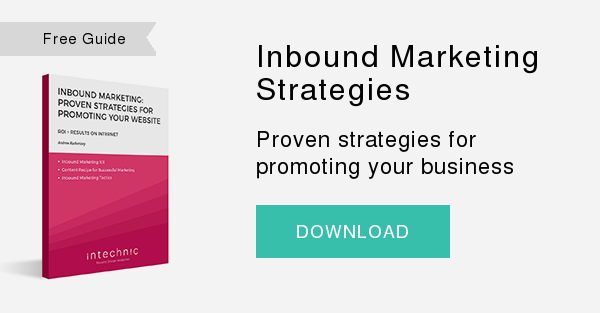What Is the Difference Between Inbound and Outbound Marketing?
 Inbound marketing is a term that was coined in 2006 by Brian Halligan and Dharmesh Shah, founders of HubSpot, one of the leading providers of marketing solutions. They explain the benefits of inbound marketing the following way: "Inbound marketing pulls customers to your company and creates lasting relationships. More than just a tactic, inbound is a philosophy. It’s fundamentally rooted in the principles that people value—personalized, relevant content and connections, not interruptive messages, and that marketing can and should be more lovable." This sounds great, but how does inbound marketing compare to traditional marketing?
Inbound marketing is a term that was coined in 2006 by Brian Halligan and Dharmesh Shah, founders of HubSpot, one of the leading providers of marketing solutions. They explain the benefits of inbound marketing the following way: "Inbound marketing pulls customers to your company and creates lasting relationships. More than just a tactic, inbound is a philosophy. It’s fundamentally rooted in the principles that people value—personalized, relevant content and connections, not interruptive messages, and that marketing can and should be more lovable." This sounds great, but how does inbound marketing compare to traditional marketing?
Inbound vs. Outbound Marketing
Inbound marketing is promoting your website and your business with various forms of quality content through blogs, search engine optimization, social media, videos, infographics, newsletters, podcasts, whitepapers, eBooks, and more. The idea behind inbound marketing is to create and distribute relevant and valuable content that the customers want. The useful content pulls visitors toward your website, brings them closer to your brand, engages them and converts them into customers as well as loyal followers. In contrast, outbound marketing includes traditional approaches, such as direct mail, cold calling, radio ads, television ads, trade shows and telemarketing. Outbound marketing is also often called interruption marketing. This term is easily understood by anyone who has had his or her dinner interrupted by an unwanted telemarketing call. In his book "The New Rules of Marketing and PR" David Scott argues that using inbound marketing businesses can "earn their way in" (for example, by publishing useful articles on their website) in contrast to outbound marketing where they "buy, beg, or bug their way in"[2] (through traditional forms of advertising or through cold calling).
Benefits of Inbound Marketing
Inbound marketing benefits everyone. Customers appreciate it because they get the information they want, when they want it and in the format that is most useful for them. Companies love it because inbound marketing makes them heard, generates quality leads and generates long-lasting relationships with their customers. With inbound marketing, companies can nurture leads throughout the entire lifecycle: from the initial visit to closing the sale. As companies learn more about their leads over time, they can create better messages that are personalized to customers' needs, making each interaction focus on the needs and desires of the individual. Finally, inbound marketing is multi-channel by nature. It allows for a more natural and integrated approach to reach people through channels they prefer and at their convenience. With a good strategy, your marketing efforts will have a compounding effect across all channels. Want to learn more? Download the whitepaper below for more strategies about converting website visitors to customers:
 Want to learn more? Check out our next post: How Does Inbound Marketing Work? And here's a helpful recap from HubSpot that explains why inbound marketing is becoming a favorite with marketing professionals:
Want to learn more? Check out our next post: How Does Inbound Marketing Work? And here's a helpful recap from HubSpot that explains why inbound marketing is becoming a favorite with marketing professionals:









